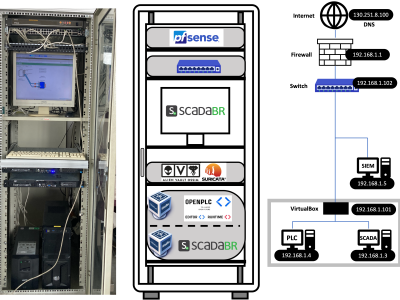
The increasing integration of cyber-physical systems in industrial environments has under scored the critical need for robust security measures to counteract evolving cyber threats. In response to this need, this work introduces an open-source dataset designed to enhance the development and evaluation of cybersecurity solutions for smart industries. The dataset comprises a traffic capture of an industrial control system (ICS) subjected to a variety of simulated cyber-attacks, including but not limited to denial of service (DoS), man-in-the-middle (MITM), and malware infiltration.
- Categories:

